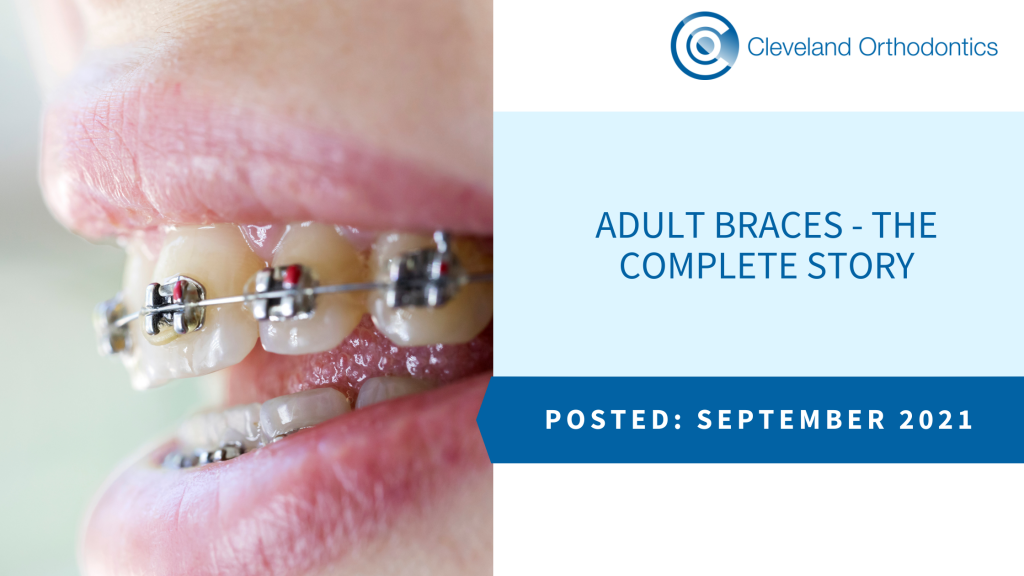
Are you thinking about orthodontic treatment with braces? Indeed, it is a very wise decision! Orthodontic treatment can help you achieve a perfectly aligned smile from teeth that are crooked, protruding or other problems such as teeth that are slanted or do not fit together effectively. This article explains everything you need to know about adult orthodontic treatment and how it can help improve your oral and physical health. So, continue reading to find out more.
Can Braces Cause Bone Loss Around Teeth?
Dental braces work by applying pressure on the teeth to move them in the desired direction. Your orthodontist will adjust the tension in the orthodontic wires attached to the braces, which exert pressure on the tooth roots, which is transferred to the jawbones. As a result, the jawbones transiently degrades in the direction of the tooth’ movement, while new bone is constantly being formed behind it. In this, way bone resorption facilitates the movement of the teeth during orthodontic treatment. However, this bone loss is only transient, and the jawbone density will be restored as soon as the treatment is completed.
On the other hand, bone loss can occur when inexperienced or unqualified dentists perform orthodontic treatment and apply excessive pressure with orthodontic wires. Such a situation can also lead to periodontal inflammation and excessive loosening of the teeth. Hence, you should always consider a qualified and experienced orthodontist for your treatment. You can visit the General Dental Council’s website to verify the academic qualifications and credentials of any dentist or orthodontist practising in the UK.
Can Gum Recession Stop Me From Getting Braces?
Typically, dentists only begin orthodontic treatment when all the underlying problems have been settled:
- Teeth cavities
- Plaque
- Tartar deposits
- Gum problems
This is because they don’t want underlying dental issues to slow down or negatively affect your treatment progress. Therefore, your dentist will first treat it before initiating your orthodontic treatment if you have gum recession.
Can I Wear Braces If I Have Periodontal Disease?
Periodontal disease affects the tissues that hold our gums, the jawbones, as well as the tissues that hold our teeth in their sockets. On the other hand, orthodontic treatment requires that the periodontal tissues and jawbone be healthy to avoid complications. But, that does not mean that you cannot get braces. Your dentist will first treat the underlying problem and then proceed with your braces treatment.
Does Straightening Of Teeth Make Them Weak?
Wearing braces itself does not make your teeth weak. However, teeth cleaning and optimal oral hygiene maintenance become challenging when wearing braces – which can lead to problems like tooth decay and gum disease. That is why the British Orthodontic Society emphasises taking care of your teeth and gums during orthodontic treatment.
What Causes Gums To Grow Over Braces?
If you observe that your gums have grown over the braces, it is due to a condition called gingival hyperplasia. According to the American Academy of Oral Medicine, gingival hyperplasia, or gingival enlargement, refers to the abnormal growth of gum tissues due to various reasons. The most common reason for gingival enlargement during metal braces treatment is long-term periodontal disease, which irritates the gums, leading to inflammation and enlargement.
Is It Bad For Your Gums To Start Wearing Braces Older Than A Teenager?
It is never too old to get your teeth straightened. According to the American Association of Orthodontists, age is rarely a deciding factor when orthodontists prepare your treatment plan; it doesn’t matter if you’re 16 or 60! Modern orthodontics offers various treatment options to fix tooth misalignment at any age. However, the duration of treatment may be prolonged in elders as their bones become brittle over time.
Why Are My Gums Swollen With Braces?
Braces wearers often find it challenging to clean their teeth, especially around the brackets and the spaces between adjacent teeth. Over time, this can lead to plaque and tartar deposition, which promotes bacterial colonisation and growth. The harmful bacterial utilise the sugars in the tartar and release toxins that cause gum inflammation. Therefore, if you feel inflamed gums while wearing braces, it may be because of periodontal disease. But, no need to worry; your dentist will fix this issue with professional teeth cleaning.
Is It True That Braces Weaken The Teeth?
No, braces do not weaken one’s teeth. Although your teeth may become transiently mobile, they will return to their healthy state once your treatment is over. However, your teeth may become weak and more prone to decay if you do not look after your oral hygiene. The American Dental Association recommends brushing twice a day, along with the use of floss and interdental brush – to keep your teeth healthy during treatment.
Can Braces Or Invisalign Make Your Teeth Fall Out?
Short answer, yes! If an inexperienced or unqualified dentist applies too much pressure on your teeth and jawbones with the excessive tension in the orthodontic wires, it can lead the periodontal inflammation and accelerate jawbone resorption. If this situation is not treated timely, it may result in your teeth falling off. To reduce the risk of this or a similar situation from happening, it is important to have an experienced orthodontist.
What Is The Oldest You Can Get Braces?
There is no age limit to getting braces. You can get braces at any age – whenever you feel like it.. However, you may expect your treatment to be slightly longer in old age as the bone becomes brittle and makes it harder to move and realign the teeth. So, are you ready to transform your smile with braces? Book a free consultation appointment with us today to discuss your treatment options and let us take care of the rest. A beautiful and healthy smile awaits you at Cleveland Orthodontics!




